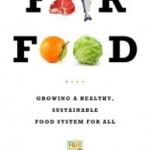 The period of counting the omer is drawing to a close. It’s one of the many times that Jewish tradition uses cycles of seven to encourage a balance of work and rest. The most famous, by far, is shabbat itself. I love that the Italian word for Saturday is “sabato.” One of the online Italian-English dictionaries has this: “Saturday is considered the last day of the week in some countries.” By “some countries” I think they mean the State of Israel. It was the Jewish Sabbath, on Saturday, that first marked the day of rest, and as Christianity and then Islam spread across the world, shabbat moved to Sunday or Friday. The lexicographical evidence of its origins has its own charm.
The period of counting the omer is drawing to a close. It’s one of the many times that Jewish tradition uses cycles of seven to encourage a balance of work and rest. The most famous, by far, is shabbat itself. I love that the Italian word for Saturday is “sabato.” One of the online Italian-English dictionaries has this: “Saturday is considered the last day of the week in some countries.” By “some countries” I think they mean the State of Israel. It was the Jewish Sabbath, on Saturday, that first marked the day of rest, and as Christianity and then Islam spread across the world, shabbat moved to Sunday or Friday. The lexicographical evidence of its origins has its own charm.
I think it’s impossible for most of us to understand how radical the idea of shabbat must have been. We grow up with two-day weekends (a day and a half in Israel, depending on your age), plus public holidays, school vacations, summer vacations, parental leave, disability. None of these existed in the first 100,000 years of biological humanity. Each of them has undergone the arc of a new idea: introduced by someone; considered crazy, ridiculous, impossible; gradually people argued for it; slowly change was effected; and then at a certain point they are taken for granted, and we can’t recall a world without them. The most famous and recent of these is Christmas itself, which in England nowadays inaugurates a ten-day period in which not much of anything gets done, but which as a public holiday traces back not so much to Christ but to Dickens.
So we will never really know where the idea of shabbat first came from. Allied with the notion that each human being is made btselem elohim – in the image of G!d – it slowly inaugurated a series of changes which enlarged human dignity, increased human liberty, and enabled a world of health and balance – we hope.
Nowadays shabbat as a concept stands mostly by itself. But in the biblical narrative it’s intertwined with a series of other iterations of seven: the seven weeks from pesach to shavuot; the seven years of each shmita cycle; and the jubilee year, coming after seven shmita cycles. The Torah teaches that rest for a person and rest for the land are connected to each other; to do one, we have to do the other. In both cases, we do not “allow” the land or the person to rest; we require it. The Torah makes the further presumption – implicit in its day, and being slowly relearned explicitly in ours – that shabbat and shmita necessarily involve concern for the most vulnerable within a society; rest for oneself and rest for the land requires concern for the landless, the day laborer, the widow and the orphan. Today we might add the illegal immigrant, the non-unionized, those without health benefits or retirement plans.
It’s not a surprise that a new generation of Jewish people who care about health and sustainability have started to focus on these related cycles. We learn from Wendell Berry that a society is as healthy as its soil, and a soil that isn’t regenerated will decline and erode. In the 1950s and 1960s most stores were closed on the Christian Sabbath, and observant Jews have been beneficiaries of the opening of shops on Sunday. But in aggregate many of us are learning what it feels like if work can be done from any laptop, and a laptop can be opened 24/7. Something that began as liberation quickly becomes enslavement.
As an organization, we and many of our friends, in the diaspora and in Israel, are seeking to move awareness of these issues up the Jewish communal agenda. In December 2007 we launched a series of long-term goals for the Jewish Food Movement and then in 2008, together with the Jewish Farm School, the Shmita Project.
 In both of them, we made reference to the next Farm Bill, which was due at some unknown future time, but which is now roughly expected in 2012. I don’t know if the Jewish community will be able to make a difference on the next Farm Bill, but if we take our tradition seriously we ought to be thinking about what a Jewishly-inflected Farm Bill might prioritize. If you’re interested in this, I very strongly commend to you Oren Hesterman’s Fair Food: Growing a Healthy, Sustainable Food System for All which is published today. It’s an important book because it builds a clear bridge between eating healthily for oneself and what it takes for us to live sustainably as a society. To learn more, join one of our webinars with Oran Hesterman, attend a book launch event in your community, or come to the Food Conference where he is a presenter.
In both of them, we made reference to the next Farm Bill, which was due at some unknown future time, but which is now roughly expected in 2012. I don’t know if the Jewish community will be able to make a difference on the next Farm Bill, but if we take our tradition seriously we ought to be thinking about what a Jewishly-inflected Farm Bill might prioritize. If you’re interested in this, I very strongly commend to you Oren Hesterman’s Fair Food: Growing a Healthy, Sustainable Food System for All which is published today. It’s an important book because it builds a clear bridge between eating healthily for oneself and what it takes for us to live sustainably as a society. To learn more, join one of our webinars with Oran Hesterman, attend a book launch event in your community, or come to the Food Conference where he is a presenter.
In a professional sense, I’ve been thinking and writing about counting the omer and shmita and the Farm Bill for many years. In this email I’m happy to add one personal postscript: this is my yovel year and, after 11 years at Hazon, I’m marking the occasion by taking my own mini-shmita. As of next week Cheryl Cook, Hazon’s COO since January 2006, will be our acting Executive Director, and Liz and I will be taking a break until the start of 5772. Hazon has a phenomenal staff and board, and it’s our hope not merely that I’ll return refreshed and renewed but also that, in my absence, many of our key leaders will be able to step forwards in multiple ways. The cycles of replenishment teach us also about the value of diversity: monocrops and industrial agriculture are no more sustainable than old models of leadership. If we value health and sustainability I hope that, in due course, sabbaticals will indeed become as obvious and as planned for as Shabbat is in most Jewish communities today.
With all best wishes,
Nigel
Nigel Savage, originally from Manchester, England, founded Hazon in 2000 by organizing and riding in a 3000-mile Cross-USA Jewish Environmental Bike Ride. In 2008 Nigel was named a member of the Forward 50 – the annual list of the 50 most influential Jewish people in the United States. He serves on the board of the Isabella Freedman Jewish Retreat Center, is a founder of Limmud NY and on the advisory board of Ramah Outdoor Adventure and the Jewish Greening Fellowship.
